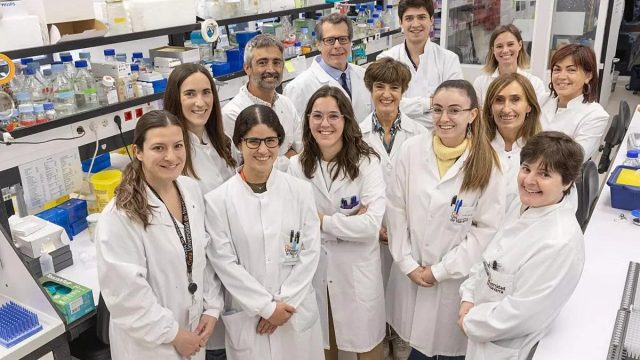Researchers a Superior University of Navarra has discovered a new target that could revolutionize the treatment of cholangiocarcinoma (CCA), very aggressive liver cancer and difficult to treat. results, published in the British magazine ‘Gut’, They bring new hope fight against disease whose numbers have increased in recent years.
Cholangiocarcinoma It is one of the biggest problems in oncology treatment, as current treatments offer limited efficacy, Cima says. Research teamtogether with national and international partners, have achieved a medical goal, to the enzyme PRMT5which “plays an important role” in progress cancer very deadly. This discovery opens up new possibilities to make more effective medicines.
“This study shows that the enzyme PRMT5 is increased in patients with CCA, and this increase is associated with a more advanced disease. By inhibiting the protein PRMT5 using drugs that are already approved for other types of tumors, we have been able to stop the growth of tumor cells. of CCA”, explains Dr. Matías Ávilaresearch leader and director of the Cima Solid Tumors Program, incorporated in Cancer Center Clínica Universidad de Navarra.
Strong medical treatment
In addition, the researchers observed that the combination of these inhibitors with conventional chemotherapies increased the antitumor effect. The results were confirmed in the original mouse models “and showed great therapeutic potential.”
This study shows the importance of “epigenetic changes in CCA and suggests that PRMT5 is a target for treatment.” In addition, it provides a deeper understanding of the cellular processes involved. in the aggressiveness of this type of tumors. These findings may lead to the initiation of new clinical trials that may significantly improve the treatment of this disease.
EU currency
This research project was supported by the Spanish Association Against Cancer (AECC) and the Red de Biomedical Research Center. Liver and Gastrointestinal Diseases (CIBEREHD), within the international project ‘TRANSCAN-3’ (an international initiative supported by European Union within the framework of Horizon 2020) and the Eugenio Rodríguez Pascual Foundation.
Through this call, the AECC Scientific Foundation, along with 24 other organizations from 17 countries, are working to support translational cancer research. Research led by Dr. Matías Ávila has been working with Dr. José Juan García Marín (University of Salamanca, USAL and IBSAL), Dr. Maria Luz Martínez-Chantar (Center for Cooperative Research in Biosciences), and Dr. Javier Cubero (Gregorio Marañón Health Research Institute, Complutense University of Madrid), of CIBEREHD.
They are found every year in Spain 6,600 new cases of liver cancerhalf of them in the highest levels, and it is the main cause of death in patients with cirrhosis due to alcohol consumption or viral liver disease. It’s more from Spanish Society of Medical Oncology (SEO), cholangiocarcinoma It represents 3% of all gastrointestinal neoplasms. The incidence of intrahepatic cholangiocarcinomas has increased in recent years in developed countries.





